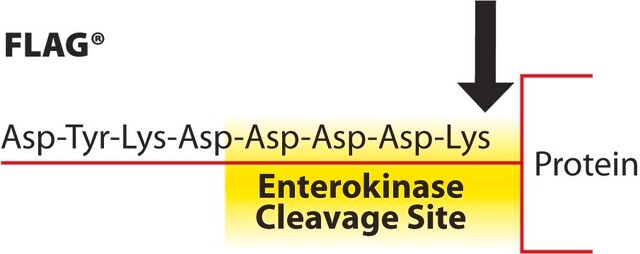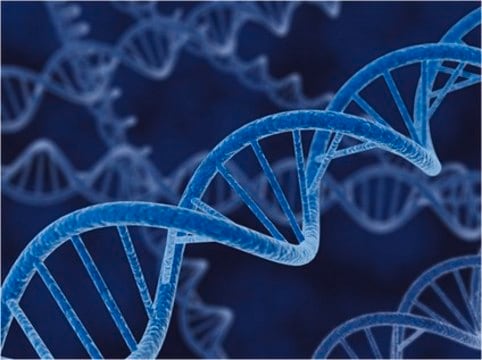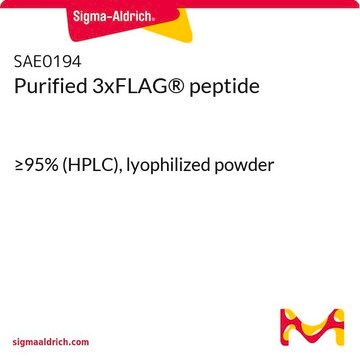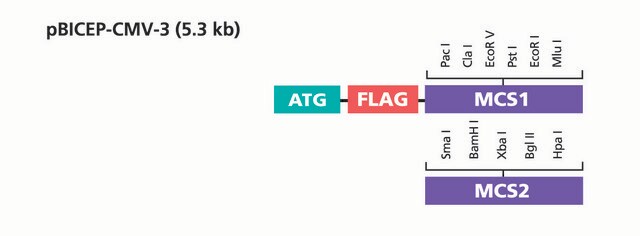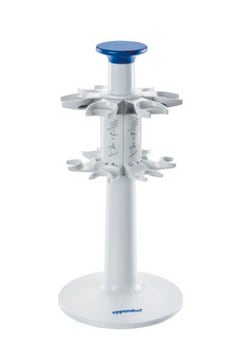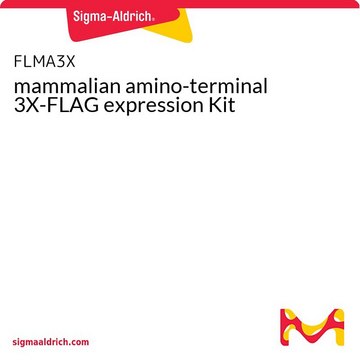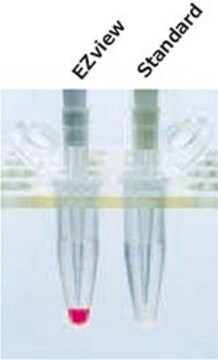Wszystkie zdjęcia(2)
Kluczowe dokumenty
E7783
p3XFLAG-CMV™-13 Expression Vector
shuttle vector for transient or stable extracellular expression of C-terminal 3xFLAG
Zaloguj sięWyświetlanie cen organizacyjnych i kontraktowych
About This Item
Kod UNSPSC:
12352200
Polecane produkty
znacznik
3X FLAG tagged
klasa czystości
for molecular biology
Formularz
buffered aqueous solution
Lokalizacja znacznika peptydowego
C-terminal
Warunki transportu
dry ice
temp. przechowywania
−20°C
Opis ogólny
The p3XFLAG-CMV™-13 Expression Vector is a 6.3 kb derivative of pCMV5 used to establish expression of transient or unstable C-terminal 3XFLAG™fusion proteins in mammalian cells. The vector encodes three adjacent FLAG epitopes (Asp-Tyr-Lys-Xaa-Xaa-Asp) downstream of the multiple cloning region. This results in increased detection sensitivity using ANTI-FLAG?M2 antibody. Efficiency of replication and genomic integration is optimal when using an SV40 T antigen-expressing host.
p3XFLAG-CMV-7-BAP Control Plasmid is a 6.2 kb derivative of pCMV51 used for transient intracellular expression of N-terminal 3X-FLAG bacterial alkaline phosphatase fusion protein in mammalian cells. The vector encodes three adjacent FLAG epitopes (Asp- Tyr-Lys-Xaa-Xaa-Asp) upstream of the multiple cloning region. This results in increased detection sensitivity using ANTI-FLAG M2 antibody. The third FLAG epitope includes the enterokinase recognition sequence, allowing cleavage of the 3XFLAG peptide from the purified fusion protein.
Vector Maps and Sequences
p3XFLAG-CMV-7-BAP Control Plasmid is a 6.2 kb derivative of pCMV51 used for transient intracellular expression of N-terminal 3X-FLAG bacterial alkaline phosphatase fusion protein in mammalian cells. The vector encodes three adjacent FLAG epitopes (Asp- Tyr-Lys-Xaa-Xaa-Asp) upstream of the multiple cloning region. This results in increased detection sensitivity using ANTI-FLAG M2 antibody. The third FLAG epitope includes the enterokinase recognition sequence, allowing cleavage of the 3XFLAG peptide from the purified fusion protein.
Vector Maps and Sequences
Komponenty
- p3XFLAG-CMV™-13 Expression Vector 20 μg (E4776) is supplied as 0.5 mg/ml in 10 mM Tris-HCl (pH 8.0) with 1 mM EDTA.
- p3XFLAG-CMV™-7-BAP Control Plasmid 20 μg (C7472) is supplied as 0.5 mg/ml in 10 mM Tris-HCl (pH 8.0) with 1 mM EDTA.
Zasada
The promoter-regulatory region of the human cytomegalovirus drives transcription of FLAG®-fusion constructs. The preprotrypsin leader sequence precedes the FLAG® sequence.
Informacje prawne
This product is covered by the following patents owned by Sigma-Aldrich Co. LLC: US6,379,903, US7,094,548, JP4405125,EP1220933, CA2386471 and AU774216.
3xFLAG is a trademark of Sigma-Aldrich Co. LLC
FLAG is a registered trademark of Merck KGaA, Darmstadt, Germany
p3xFLAG-CMV is a trademark of Sigma-Aldrich Co. LLC
Ta strona może zawierać tekst przetłumaczony maszynowo.
Kod klasy składowania
10 - Combustible liquids
Wybierz jedną z najnowszych wersji:
Certyfikaty analizy (CoA)
Lot/Batch Number
Przepraszamy, ale COA dla tego produktu nie jest aktualnie dostępny online.
Proszę o kontakt, jeśli potrzebna jest pomoc Obsługa Klienta
Masz już ten produkt?
Dokumenty związane z niedawno zakupionymi produktami zostały zamieszczone w Bibliotece dokumentów.
Thomas Seck et al.
The Journal of biological chemistry, 278(25), 23085-23093 (2003-04-11)
Numerous alternatively spliced transcripts are generated from the gene for the G protein-coupled calcitonin receptor, and some of the splice variants show differences in receptor-mediated signaling events. This study showed that the deltae13 splice variant of the rabbit calcitonin receptor
Seakwoo Lee et al.
The Biochemical journal, 403(1), 31-42 (2006-12-21)
Human MMP-26 (matrix metalloproteinase-26) (also known as endometase or matrilysin-2) is a putative biomarker for human carcinomas of breast, prostate and other cancers of epithelial origin. Calcium modulates protein structure and function and may act as a molecular signal or
Rong Hou et al.
The Journal of biological chemistry, 284(11), 6955-6965 (2009-01-10)
Fat1, an atypical cadherin induced robustly after arterial injury, has significant effects on mammalian vascular smooth muscle cell (VSMC) growth and migration. The related Drosophila protein Fat interacts genetically and physically with Atrophin, a protein essential for development and control
Veronica Rondahl et al.
PloS one, 8(9), e73635-e73635 (2013-09-12)
The leucine-rich repeats and immunoglobulin-like domains (LRIG) proteins constitute an integral membrane protein family that has three members: LRIG1, LRIG2, and LRIG3. LRIG1 negatively regulates growth factor signaling, but little is known regarding the functions of LRIG2 and LRIG3. In
Nasz zespół naukowców ma doświadczenie we wszystkich obszarach badań, w tym w naukach przyrodniczych, materiałoznawstwie, syntezie chemicznej, chromatografii, analityce i wielu innych dziedzinach.
Skontaktuj się z zespołem ds. pomocy technicznej